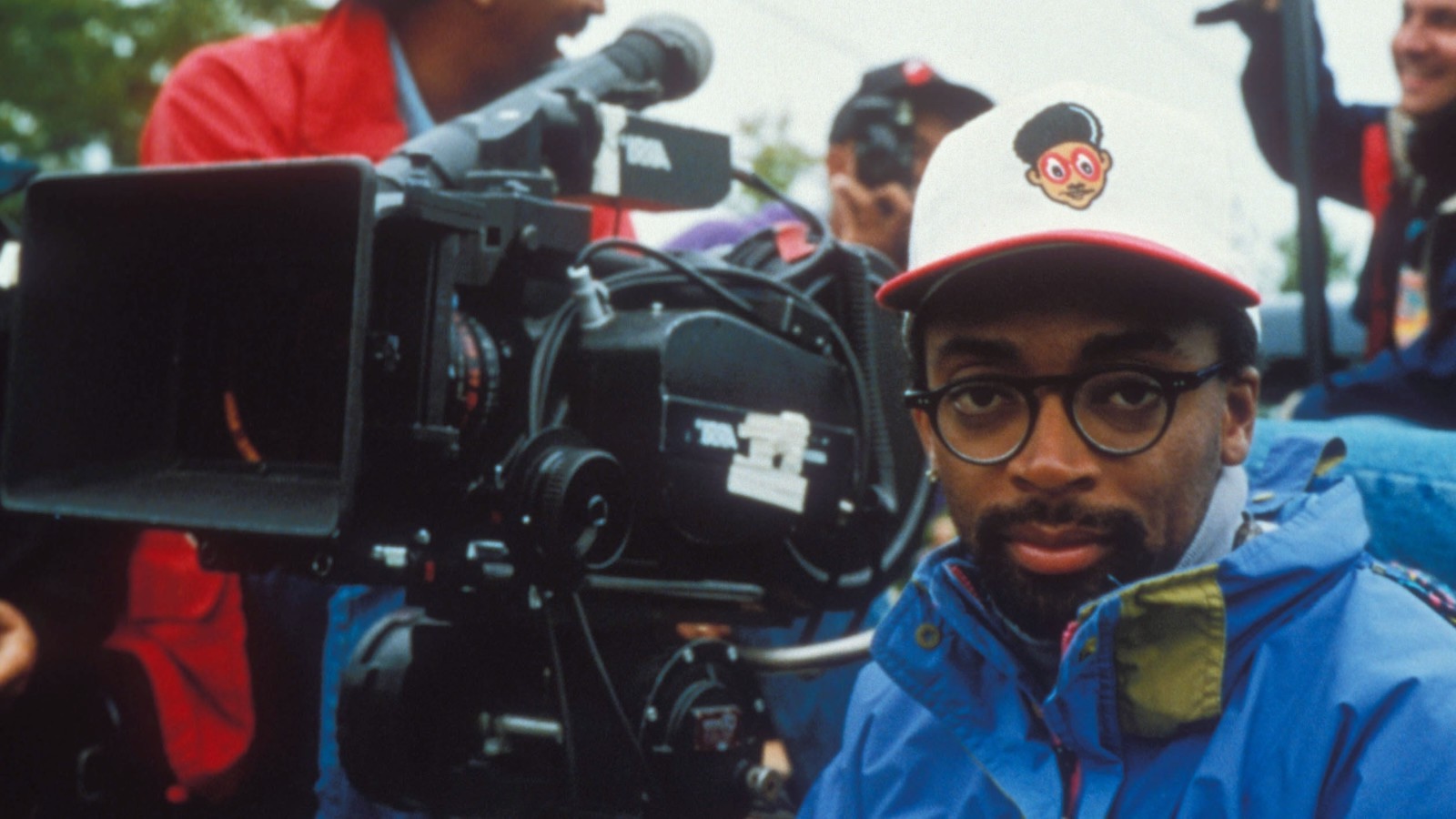SPIKE LEE: Black Influence in Hollywood
Written by Kayen Manovil ‘23-‘24 Student Board Member
When we speak of trailblazers in the Black community, we often speak of civil rights leaders and political pioneers. While MLK Jr, Rosa Parks, Malcolm X, Harriet Tubman and the many more have undeniably earned their foot in the appreciation circle for their contributions to Black liberation, we often forget to include those whose art medium transcends minds on a global scale: Filmmakers. From breaking stereotypes with multidimensional stories on Black experiences to inspiring a wave of social critique through a Black lens, it’s safe to say that screenwriter and director Spike Lee revolutionized cinema, and therefore American culture forever.
To begin, Lee’s first act of revolution was the act of being unapologetically Black in his medium. Before Lee’s first hits, Black cinema was not mainstream and was seen as nothing short of a joke. At the time, movies that portrayed Black people were relegated to stereotypes and marginalized representations. Obviously, films like Birth of a Nation, the first feature length film in the United States that depicts Black people through blackface are exemplary of this. However, the films that geared towards Black audiences at the time, known as “Blaxploitation Films”, while entertaining, did not help the notion that Black people weren’t capable of creating complex, multidimensional stories and characters like the more established White movie directors of the 20th century. Spike Lee refused to conform to the narrow portrayals that had been imposed on Black characters and instead sought to tell stories that reflected the richness and complexity of Black experiences.
Many may not know that the first Black man to make a feature length motion picture was actually Oscar Micheaux. Although he was a pioneer for progress and an inspiration for Spike Lee, Micheaux’s films never made it to the mainstream and therefore weren’t as influential as they could have been had he been born in a slightly more progressive era like Lee was.
Lee used his films as an opportunity to not only break stereotypes by being an esteemed Black filmmaker, but to tell complex stories from Black perspectives which, after breaking box office records, served to open minds across the nation and shift narratives on Black experiences. Through films like Do the Right Thing and Malcolm X, Lee addressed issues of race, class, and identity in a way that was both thought-provoking and unapologetically honest. He challenged viewers to confront their own biases and prejudices and pushed them to reexamine their understanding of the world around them.
Furthermore, Spike Lee has popularized critiquing American society through a Black lens through his films. Since his first hits, we’ve seen a new wave of critical media through a Black lens. Filmmakers like Ava Duverney, Jordan Peele and Cord Jefferson have become a few of the groundbreaking Black filmmakers in the past 25 years to challenge society with a Black focus. Stories like Origin, Get Out, and American Fiction are redefining Black stories and the angles in which we critique society. Their work serves as a reminder of the importance of using art to challenge the status quo and push for a more socially and politically prosperous world.
The impact has been clear, evident in how even the Academy, notorious for their lack of diversity, has recognized films like Get Out and Moonlight as Best Picture nominees. This is not to exclusively credit Lee, but to highlight the significance of his work within filmmaking and its influence on American culture.
In essence, Spike Lee has not only revolutionized cinema, but has opened doors for a new era of Black voices in the filmmaking industry. By being himself and true to his values as a Black artist, Lee left a profound impact that didn’t merely shake the cinematic industry, but shifted the tides of American culture. His work serves as proof that cinema is an effective and powerful tool to spotlight untold perspectives, reflect on society’s missteps and milestones, and reshape narratives.
WORK CITED
Arnaud, Jourdan. “The History of Black Filmmakers Who Changed Hollywood.” The Los Angeles Film School, Jourdan Arnaud https://www.lafilm.edu/wp-content/uploads/2020/03/lafilm-logo-2.png, 22 Mar. 2022, www.lafilm.edu/blog/the-history-of-black-filmmakers-who-changed-hollywood/.
“Fight the Power: Spike Lee’s Impact on Black Cinema.” The Film General, 29 May 2011, thefilmgeneral.wordpress.com/essays/fightthepower/.
Guerrero, Ed. “Spike Lee: A New Black Wave of Cinema.” ACMI, www.acmi.net.au/stories-and-ideas/spike-lee/. Accessed 21 May 2024.
Whitten, Sarah. “20 Black Filmmakers Who Have Changed Hollywood in the Last Century.” CNBC, CNBC, 19 Feb. 2021, www.cnbc.com/2021/02/19/20-black-movie-directors-that-changed-hollywood-in-the-last-century.html

